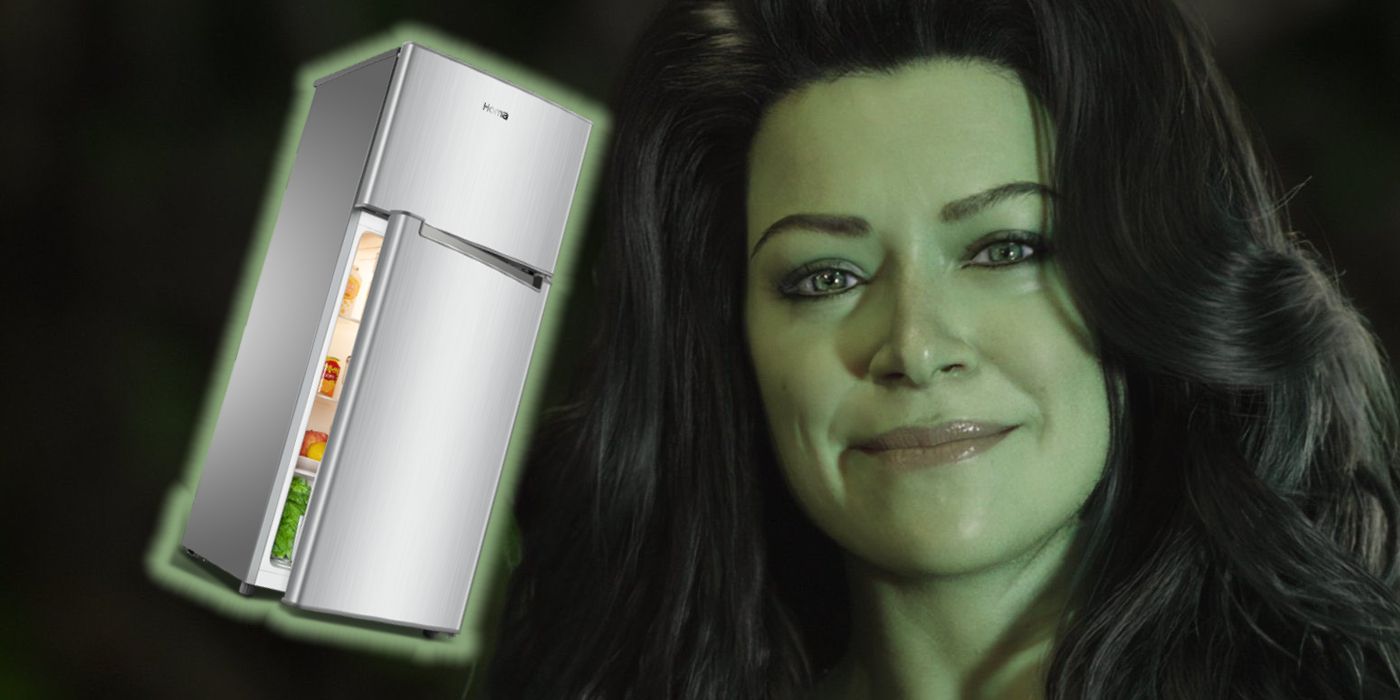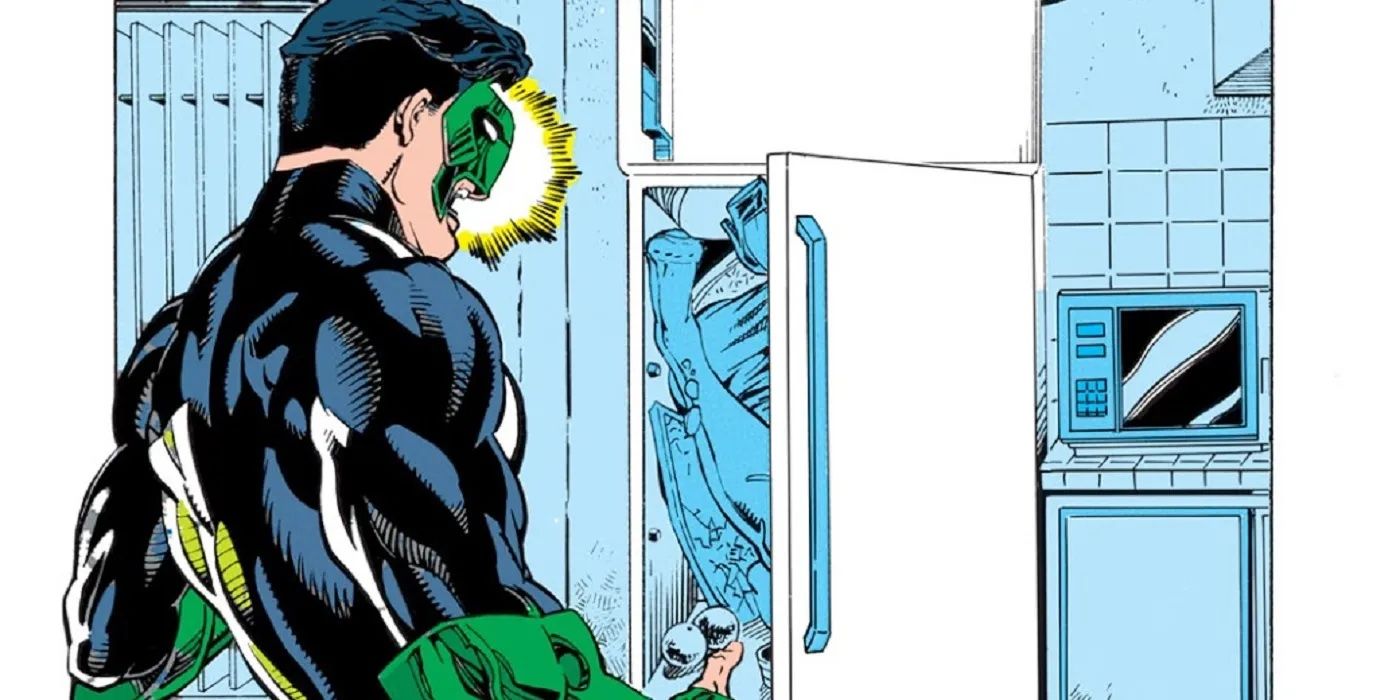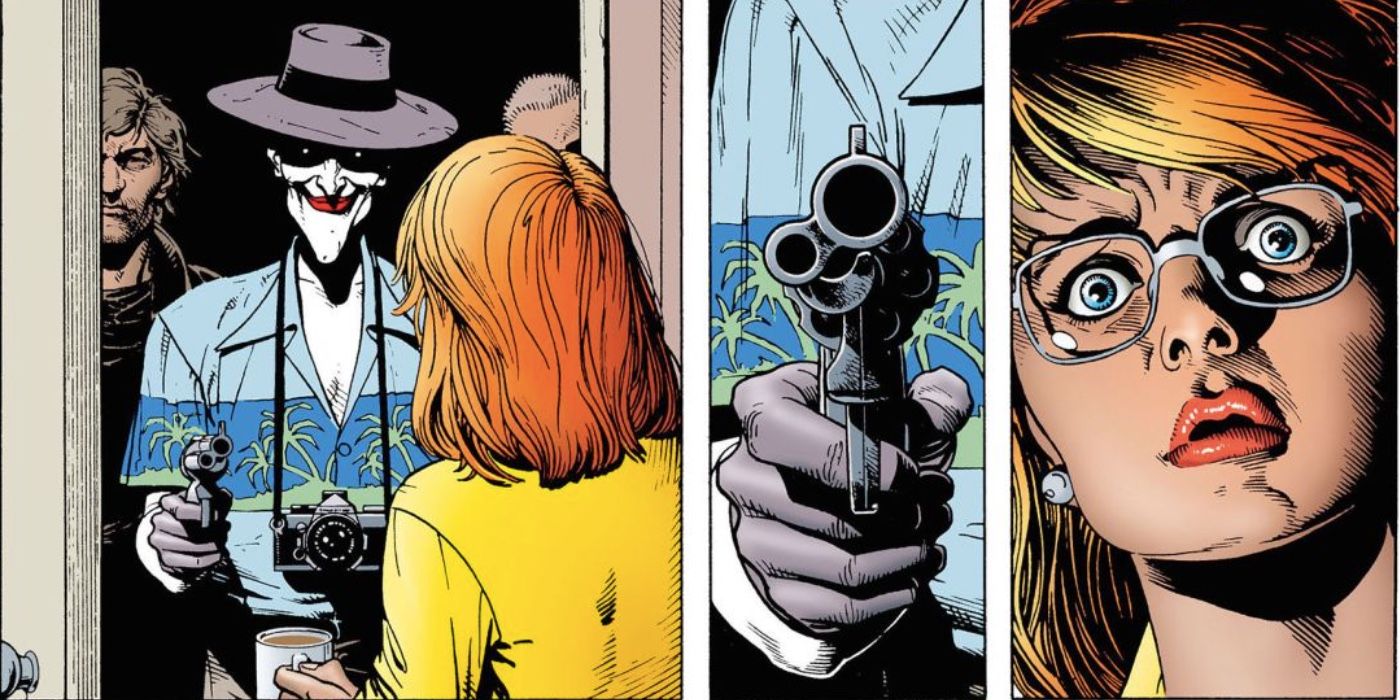The following contains spoilers for She-Hulk: Attorney at Law Episode 8, "Ribbit and Rip It," which debuted Oct. 6 on Disney+.
She-Hulk: Attorney at Law has never been afraid to call out the double standards and blatant sexism women face in a male-centric society. Jen thinks her life is heading in the right direction in Episode 8, "Ribbit and Rip It," which makes her question if a twist is coming in the finale -- and she thinks she's the next female character to be "fridged."
The joke might fly over some people's heads since Jen makes so many references throughout the series. At one point or another, it's hard to keep up with what Easter egg she'll name-drop next. But the inclusion of such a controversial topic in a show that has been targeted by fans as being "too woke" and "pushing the feminist agenda" is an interesting way to spark a conversation about fridging. Unfortunately, fridging isn't exactly a new concept that She-Hulk just came up with on the fly and has an interesting history with both DC and Marvel comics.
What Is "Fridging?"
Also known as the "women in refrigerators" trope, "fridging" was coined by comic book writer Gail Simone in 1999. Simone saw a recurring trend with female characters in superhero comics. The trope describes any situation where a woman is injured, maimed, killed or even depowered for the sake of anguishing men -- which in turns motivates them to get revenge or be a hero. Comic book writers came up with an entire list of female characters that are a victim of this trope on the website "Women in Refrigerators," owned by Simone herself.
Fridging refers to an infamous incident from 1994's Green Lantern #54 where Kyle Rayner finds his girlfriend, Alexandria DeWitt, killed and stuffed into the fridge. Comic book characters can die at any point, and in no way is the trope trying to persuade writers to make female characters untouchable. Instead, it calls out how many female characters have died for the sole reason to move a male character's story forward. The trope isn't just restricted to the medium of comic books though; movies, television and an astounding number of video games see a male character lose a female character close to them so their grief motivates them to continue their journey. One of the most recent examples include Aemma Targaryen's involuntary death in House of the Dragon, which attempted to represent the grim reality of women's risk in giving birth but instead reinforces a worn out cliché that ultimately benefitted her husband.
History of Fridging In Comics
Looking back on fridging in comics, one of the most abominable cases of the trope derives from Batman: The Killing Joke, which depicted a traumatic and exploitative treatment of Barbara Gordon, a.k.a. Batgirl. In the graphic novel, the Joker shoots and paralyzes Barbara and takes pictures of her lying nude on the floor after the shooting. Further, the graphic novel never dives into how Barbara is deeply affected by the experience, but rather showcases how Batman and Commissioner Gordon were traumatized by their pain.
In the context of She-Hulk: Attorney at Law, Daredevil's appearance in the same episode fridging is name-dropped calls back to his own problematic past with the trope. Both Karen Page and Elektra, two of Daredevil's love interests, have been a victim of the trope in comics. Karen's addiction to drugs, association with pornography, being diagnosed with HIV, and her eventual death motivated the Man Without Fear to continue his work as a vigilante. Elektra's death at the hands of Bullseye and subsequent resurrection by the Hand pushed Daredevil to defeat the Hand and purify the soul of his lost love.
While there are still many modern takes on fridging, there are instances in comics in which the trope has been criticized in subversive, interesting ways. Nightwing #90 subverts the trope by literally fridging Barbara Gordon by loading her into a refrigerated truck. X-Force #24 sees Chronicler protesting Colossus killing his lover Kayla, arguing that he shouldn't take away her agency and treat her like a pawn. Although Kayla still dies, the issue was willing to explore the criticism of the trope, but failed to subvert it on a meaningful level that would have allowed Kayla to live.
Why Does She-Hulk Reference the Trope?
After teaming up with Daredevil to take down a bunch of henchmen (and having a one-night stand with the Man Without Fear), Jen is surprised to see that the episode hasn't ended. It was a satisfying conclusion, and she wonders what more the audience wants from her. She takes a few guesses about what could possibly be happening next since the finale has yet to air. One of these guesses is that she might get fridged, an appropriate reference considering She-Hulk is the most socially aware of the various Marvel projects when it comes to feminist issues. Jen has previously pointed out the double standards women face when compared to men and the outdated trend of naming female superheroes after men. It only feels appropriate that she calls out the infamous fridging trope that is still seen in the MCU — namely with Natasha Romanoff’s death in Avengers: Endgame and Wanda Maximoff’s loss and downfall in WandaVision and Doctor Strange In the Multiverse of Madness.
However, Jen probably doesn't have to worry much about being fridged. She’s the main character of a show that isn’t interested in elevating men by torturing or killing women. The victims of fridging are specifically portrayed as damsels in distress - another highly inappropriate, outdated genre trope that doesn’t work when women are doing the saving, or aren’t even interested in being a hero. In fact, fridging is founded in melodrama under the belief that male superheroes must rise above tragedy and loss to become the heroes they were born to be. Jen has her own struggles -- namely in this episode, the Intelligencia projecting anti-She-Hulk rhetoric that includes a "slut"-shaming video of her hook-up with Josh -- but her hardships are never used to promote a man's righteousness as a hero. However, even in a world of satire where a woman is the main character, Jen still has to wonder and actively worry about being killed and stuffed into a fridge due to the relentlessness of sexism.
The first eight episodes of She-Hulk: Attorney at Law are available to stream now on Disney+. The upcoming season finale will release on Thursday, Oct. 13.




